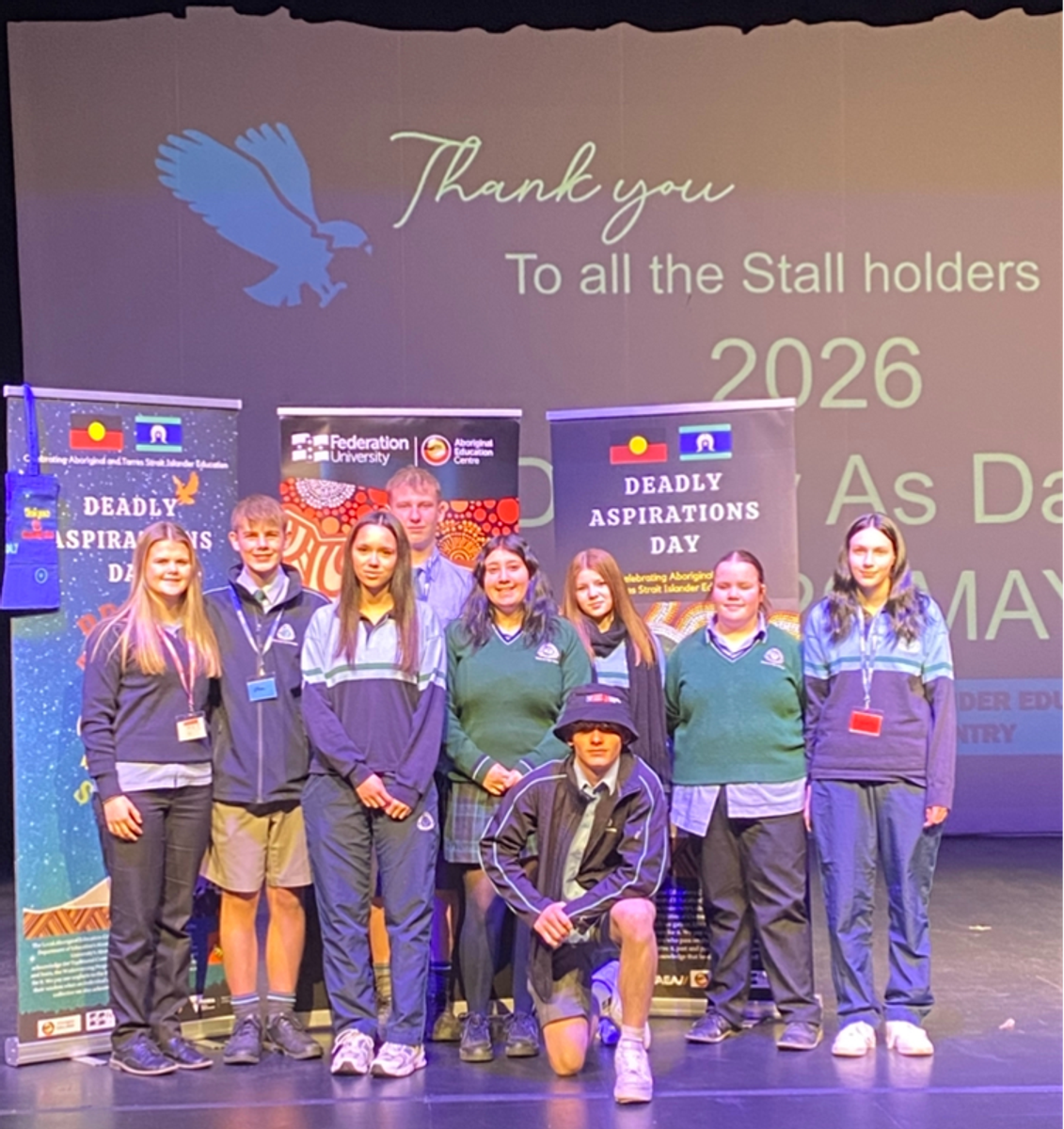Principal's Report

At the time of writing, the Ballarat High School Community have entered Reconciliation Week. Bookended by two significant milestones in the reconciliation journey - the successful 1967 Referendum (27 May) and the High Court Mabo decision (3 June) - it is a time to reflect on the struggles and challenges faced by First Nations people and the part we all have to play in celebrating our shared history, strengthening relationships and working towards reconciliation between Aboriginal and Torres Strait Islander peoples and non-Indigenous Australians.
Growing up in the UK, the colonial history of Australia was limited to a double page in a textbook that focused on Captain Cook’s voyage on the Endeavour and did not speak of the devastation inflicted on our world’s oldest culture through land dispossession, institutionalised violence and abuse and ongoing racism. The past should never be forgotten but it should always be remembered and whilst so much has been done over the course of the last 50 years, the scars still run deep. We all have an opportunity to stand in solidarity with our Aboriginal and Torres Strait Islander community members by building a better future for our students. The theme for this year’s Reconciliation Week is ‘Bridging Now to Next’ and it urges us to look ahead, as a community and use our collective strength to build a better future together.
Hope in the future was evident when I attended the "Deadly As Day" event last week at Federation University with our Wellbeing Leader and proud Dja Dja Wurrung woman, Shirlene Laurie and a group of our Year 9-12 First Nations students. Our students represented our school with pride and they connected with other secondary students from schools throughout our area to recognise their shared strength and self-determination in choosing an aspirational path for themselves and their communities. I continue to be inspired by our students and the conversations that I had throughout the day regarding the positive change that our students want to be part of our community, strengthens my faith in what these students will achieve in their time at Ballarat High School. There is so much more we can do in celebrating culture and strengthening cultural safety for our First Nations students. I am committed to supporting them in the changes they want to make.
And we have so much aspiration and promise within our students, epitomised by Jordan Brown who, as one of our Year 12 First Nations students completing her VCE this year, received an award on the day in recognition of her amazing achievement. Jordan, like all of our other students, are writing their own present and future and are the leaders we need to ‘bridge now to next’.
We are incredibly fortunate to be able to learn, grow and connect, every day, on land that has been nurtured and cared for across tens of thousands of years by the Wadawurrung people of the Kulin Nation. These are their original lands and they are the original custodians who have experienced hardship and loss yet still remain strong. When we acknowledge and thank their elders and leaders from the past and the present, we should do so with a recognition of the debt that we owe them and the promise that we will treat their land with respect. Theirs is a deep and spiritual connection to the land that must be honoured. As we look around, can we say that this is something that we do on a daily basis? At Ballarat High School, we need actions as well as words to live our values and our beliefs. Now is the time to show our commitment to the land and to its people.
It is clear to First Nations people, as it should be to us all, that if you look after country, country will look after you.
As in all things, we must strive as a community to be better.
Caring for Country encompasses a caring for and a celebration of culture: of stories, songlines, language and connection to Country. We are all sharing this timeline together and have an obligation to honour these deep-seated traditions and practices. As well as investing in our First Nation students’ education so that they might grow and thrive, we must show greater reverence and care to Country. We will be better in this.
We should never take for granted the 60,000 years of care and protection, in the face of unimaginable loss and adversity, that the original custodians of the land have provided to the place our community has called home for a period of time: time that is no more than a blink of an eye. Our commitment to the aspirational advancement of our First Nations students must be resolute, as should the honour we show Wadawurrung elders past and present in all that we do on this land and beyond.
Though we share only a brief moment of Aboriginal and Torres Strait Islander history, we all have an important part to play in shaping a better future for our students and the land on which we learn.
Mr Stephan Fields
Principal

